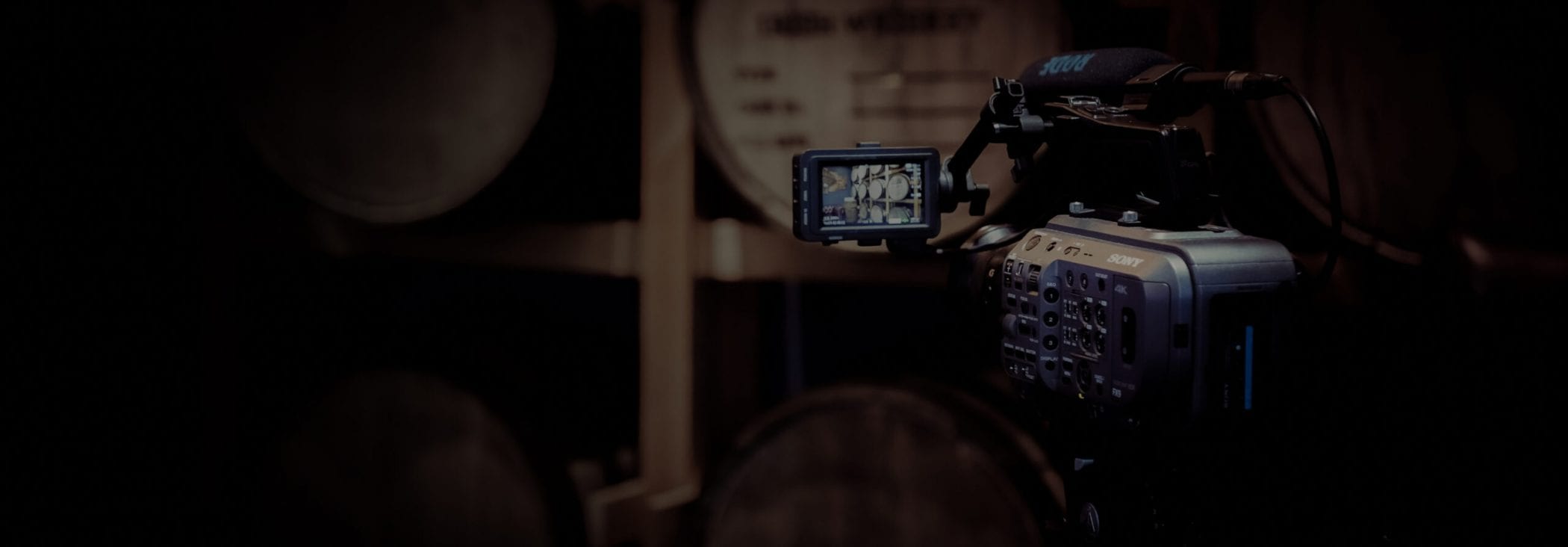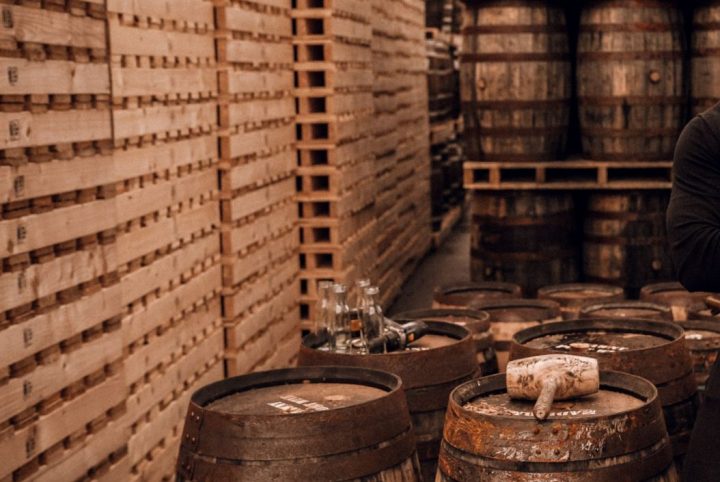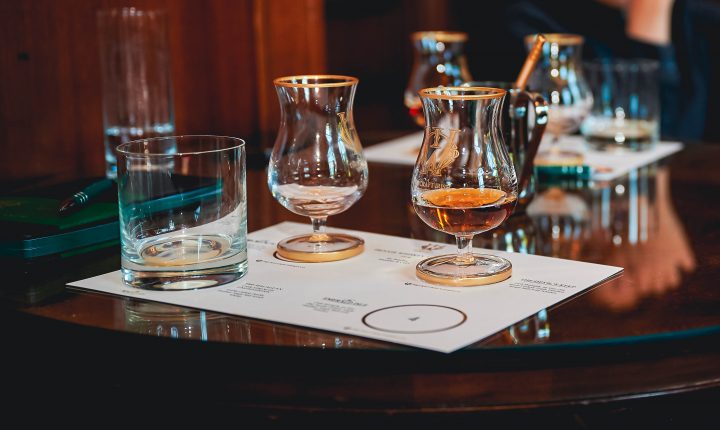
The Best Luxury Bottled Whiskey and Award-Winning Cask Whiskey to Invest in, according to the Connoisseurs
Just a decade ago, there weren’t many ways for a whiskey connoisseur to support the Irish whiskey industry directly. There were some great bottles on the market, but private cask whiskey investment was largely unheard of. And when it came to investing in alcohol, people usually thought of wine.
Whether it was buying rare vintages at auction or laying down promising bottles in the cellar, investing in wine was done privately and on a small scale – those interested would buy bottles or cases usually more for their own future enjoyment than any real potential economic gain.
All of that’s changed as investing in whiskey has gained momentum and investors have begun to recognise some of the great opportunities that come along with investing in the global whiskey market. As co-founder of the Whiskey & Wealth Club, Jay Bradley has seen this shift take place firsthand and has prepared his guide to finding the best whiskey to buy for investment.
What is Whiskey Investment?
In recent years, whiskey has become the spirit of choice for many investors. According to the Knight Frank Luxury Investment Index, the value of rare bottles of Scotch single malt has increased by 478% over the past decade – making it one of the strongest performing asset classes on earth over the past ten years!
The array of options available to those looking to get involved make it an especially attractive proposition. If you’re looking to go the rare bottle route and pick one up for a future special occasion or profit at a rare spirits auction, there are more whiskey distilleries than ever creating exceptional expressions from all over Ireland. We’re partial to our releases from The Craft Irish Whiskey Co., of course, but it depends on your personal tastes. If you’re looking to invest in something special, it’s important to do your own homework and see if that bottle is right for you.
And it’s key to note one of the biggest differences between whiskey and wine: laying down a bottle of wine for years may improve its flavour, but also carries a huge risk of being corked. Whiskey, on the other hand, matures in the cask – it’s very unlikely to change once it’s been bottled, regardless of how long it sits in the cellar. We have seen whiskies over 100 years old still taste like they would have if they’d been opened a century earlier. While there’s been a run on dusty bottles in recent years, buying a bottle of mid-range whiskey today is no guarantee it’ll become something desirable in a few decades. You really need to understand what drives the potential future value of bottled whiskey.
The potential future value of bottled whiskey is primarily driven by three factors:
- Scarcity – When there’s a limited number of bottles available, those few bottles tend to be more valuable. Whether they were part of a special edition or are the last remaining representations of a particular notable distillery, rarer bottles are more likely to fetch higher prices or appreciate at greater rates than bottles that were produced in greater volumes.
- Renown – A rare or especially luxurious whiskey can command a high value in its own right, but if it is an award-winning whiskey, it can see an exponential increase in value. For example, the Japanese whiskey The Yamazaki Sherry Cask initially sold for under £200 a bottle when it was released in 2009. Several years later, a 2013 vintage was awarded ‘World’s Best Single Malt’ and those bottles can now sell for upwards of £10,000!
- Exclusivity – When a whiskey is produced to commemorate a special occasion, whether it’s a Royal Jubilee or a distillery’s first release, there can be even greater potential for increases in value. A distillery will craft a premium expression to mark an event, then they may ask a renowned artist to create an exclusive label, or the event itself may take on greater significance in the future. These bottles are rarely just bottles, but pieces of art and history in their own rights.
With that having been said, If you are willing to wait those few decades for the chance to experience incredible growth and returns from whiskey, cask investment may be something to consider. For the whiskey aficionado with time on their side, cask investment offers the opportunity to play an important role in the production of future whiskey. When distilleries make new spirits, they often sell off a number of the newly-filled casks to subsidise their operating costs. In the past, these surplus casks were usually purchased wholesale by other distillers and bottled after three years of maturation (the legal minimum to be designated whiskey or whisky in Ireland and Scotland).
How to Invest in Whiskey
Today, Whiskey & Wealth Club offer private investors the opportunity to purchase these casks and take part in a market they otherwise would never be able to access. When you say yes to investing in whiskey casks with Whiskey & Wealth Club, we look after the storage, insurance, and the legal terms and conditions, so you can sit back and relax in the knowledge that your cask of whiskey is ageing to perfection in secure government controlled bonded warehouses for as long as you set the terms of your investment. Once you’re ready to consider exit strategies, we’ll be there to advise you on your options, from potentially selling back to the distiller you supported initially or other brands looking for surplus casks, putting the casks up for auction, or bottling for your own private label release.
As with bottles, there are whiskey casks available at every price point. The Whiskey & Wealth Club work exclusively and direct with distilleries who produce casks for well-known luxury whiskey brands, as we have found that these are more likely to hold or increase in value. Other whiskey brokers may offer mass-produced, unbranded casks, so it’s worth doing your research and learning as much as you can about your potential casks. If you’re looking to hold onto your cask for a number of years, having a branded cask does lend an extra provenance to your investment that opens up so many more exit options and could contribute to a significant profit when you sell.
Similar to bottles, there are a few factors that can determine the value of a cask. When exploring cask whiskey investment, these can be some crucial questions to consider:
- How many casks were produced? – When purchasing a cask of whiskey, you want to ensure that yours is one of a limited number made available by the distillery in a given year. Ideally, the whiskey distillery will have reserved the majority of their new make spirit for their own releases and offered only a few to investors, so yours will be one of only a select number on the market in ten years.
- Does the brand already have whiskey bottles on shelves? – Devoted fans drive demand. When a premium brand is well-known, the casks made expressly for their brand can sell for far greater prices than unbranded casks of the same age.
- Was the whiskey produced by a world-class master distiller? – Premium whiskey distilleries work with master distillers to craft the finest possible spirits. These master distillers not only ensure that the spirit is the best it can be but lend further provenance to the cask and drive demand among devotees.
- Has the whiskey won any awards? – When a whiskey earns accolades, it’s likely that this will be followed by an increase in interest in the distillery and an increase in value for their products.
As with any investment, there are risks as well as benefits. We can’t simply choose and guarantee returns based on what are the top 5 whiskeys, or what is the top rated whiskey. Or say that one whiskey or the other would make the definitive best investment – the best whiskey to invest in is often the one that makes the most sense for you and your budget. If you’re thinking about cask investment, check out these third party Whiskey Wealth Club reviews and get in touch with us – we’ll be able to talk you through every step of the process and find the right option for you.

